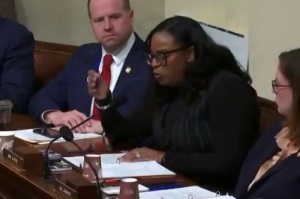Tennessee law banning trans sex-change procedures for kids to go into effect, appeals court rules

An appeals court panel has struck down a block on a Tennessee act that bans prescribing body-disfiguring puberty blockers, opposite-sex hormones or sex-change surgeries from being performed on children and youth expressing confusion about their sex, allowing the state to enforce the law.
A three-judge panel of the United States Court of Appeals for the Sixth Circuit ruled on Saturday that a Tennessee law passed back in March could take effect, removing a preliminary injunction placed on the act from a lower court.
Sixth Circuit Chief Judge Jeffrey Sutton, an appointee of former President George W. Bush, authored the opinion of the panel, concluding that “Tennessee is likely to succeed on its appeal of the preliminary injunction.”
Sutton noted that both sides of the litigation “have the same fear, just in opposite directions—one saying the procedures create health risks that cannot be undone, the other saying the absence of such procedures creates risks that cannot be undone.”
“If the injunction remains in place during the appeal, Tennessee will suffer irreparable harm from its inability to enforce the will of its legislature, to further the public-health considerations undergirding the law, and to avoid irreversible health risks to its children,” wrote Sutton.
“As for harm to others, the Act’s continuing care exception permits the challengers to continue their existing treatments until March 31, 2024. That feature of the law lessens the harm to those minors who wish to continue receiving treatment.”
Regarding debate over the merits of the law, Sutton added that “not every choice is for judges to make,” for “elected representatives made these precise cost-benefit decisions and did not trigger any reasons for skeptical review in doing so.”
“As for the public interest, Tennessee’s interests in applying the law to its residents and in being permitted to protect its children from health risks weigh heavily in favor of the State at this juncture,” Sutton continued.
Senior Judge Helene N. White authored an opinion that concurred in part and dissented in part from the panel opinion, writing that she believes the law was “likely unconstitutional based on Plaintiffs’ theory of sex discrimination.”
“Tennessee’s law likely discriminates against Plaintiffs on the basis of sex in violation of the Equal Protection Clause, thus triggering intermediate scrutiny,” wrote White.
“However, I agree that the district court abused its discretion in granting a statewide preliminary injunction … I would uphold the stay as it applies to Plaintiffs and also Vanderbilt University Medical Center.”
Tennessee Attorney General Jonathan Skrmetti released a statement in response to the panel decision, noting that while the decision was not the end of the litigation, it was a “big win.”
“The case is far from over, but this is a big win. The court of appeals lifted the injunction, meaning the law can be fully enforced, and recognized that Tennessee is likely to win the constitutional argument and the case,” stated Skrmetti.
Known as Senate Bill 1, or the Prohibition on Medical Procedures Performed on Minors Related to Sexual Identity, the act prohibits healthcare providers from performing genital mutilation surgeries or providing puberty blockers to minors suffering from confusion about their sex.
“The legislature declares that the integrity and public respect of the medical profession are significantly harmed by healthcare providers performing or administering such medical procedures on minors. This state has a legitimate, substantial, and compelling interest in protecting minors from physical and emotional harm,” stated the findings of the legislation.
“This state has a legitimate, substantial, and compelling interest in protecting the integrity of the medical profession, including by prohibiting medical procedures that are harmful, unethical, immoral, experimental, or unsupported by high-quality or long-term studies, or that might encourage minors to become disdainful of their sex.”
In April, the Tennessee chapter of the American Civil Liberties Union, Lambda Legal and others sued the state over the new law on behalf of trans-identified minors and their families.
Additionally, in April, the U.S. Department of Justice filed a complaint in intervention on behalf of the families suing the state, claiming that the law “prohibits certain forms of medically necessary care for transgender minors.”



























